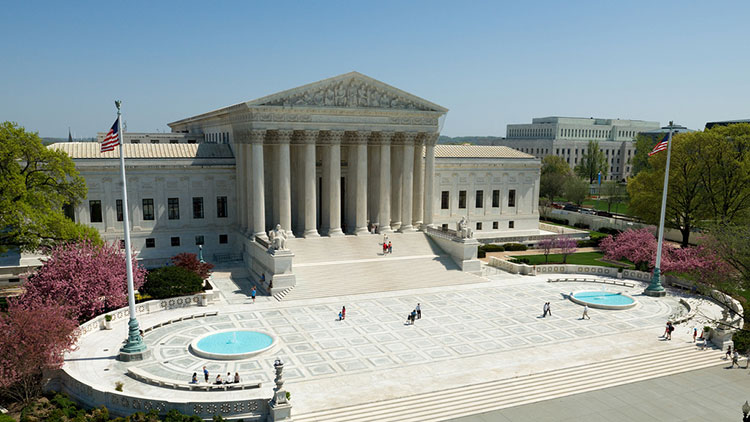ISPs Seek More Time to Challenge Title II in Supreme Court

The smarter way to stay on top of broadcasting and cable industry. Sign up below
You are now subscribed
Your newsletter sign-up was successful
ISPs have asked the Supreme Court for a 60-day extension of the deadline for filing their appeals to the Supreme Court of a D.C. federal appeals court decision upholding the FCC's Title II-based Open Internet order.
They want an extension fromJuly 30 to Sept. 28in case the new FCC proposal to roll back Title II moots that appeal.
Seeking the extension are NCTA–The Internet & Television Association, CTIA–The Wireless Association, USTelecom, the American Cable Association, AT&T, CenturyLink , Alamo Broadband, TechFreedom and various individuals including VoIP pioneer Daniel Berninger.
The FCC has sought comment on the proposal by the Republican FCC majority under chairman Ajit Pai to reclassify internet access—wired and wireless, fixed and mobile, customer facing and interconnections—as an information service not subject to Title II and to review whether rules against blocking, throttling and paid prioritization are necessary.
Those comments are dueJuly 17(initial comments) andAug. 16(replies).
Given that timetable, and "Depending on how the commission responds," they told Chief Justice John Roberts in the request for an extension "the rulemaking has the potential to moot applicants' challenges to the Title II Order in whole or in part and to alter the relief that applicants may seek in their petitions."
They also say an extension would allow coordination of petitions by the various parties if the appeals are not mooted by FCC action beforeSept. 28.
The smarter way to stay on top of broadcasting and cable industry. Sign up below
Even while signaling their appeal could be moot, the parties took the opportunity to tell Roberts why the FCC decision is appeal-worthy.
"Applicants believe that the D.C. Circuit's decision warrants this Court's review because it exceeds the scope of the Commission's authority to regulate broadband Internet access service under the Communications Act, and because the Commission violated bedrock principles of administrative law," they said. "The Commission has effectively arrogated to itself plenary, unprecedented jurisdiction to heavily regulate the Internet, not only without any clear statutory mandate, but also in the face of numerous statutory provisions designed to keep the Internet lightly regulated. And it took this extraordinary act without providing a substantial justification for its policy reversal or accounting for the massive reliance interests deliberately engendered by its decades-long light-touch policy. The Commission's decision is of extraordinary importance to the national economy, to future investment and innovation in the technology sector, and to the limits of agency authority."
The request for extension came a day before opponents of the Title II rollback are holding a pro-Title II day of action.
Participants in theJuly 12protest include Google, Facebook, Amazon, Netflix, Vimeo and a veritable cast of thousands trying to rally their supporters to contact their legislators or other government officials to preserve the 2015 Open Internet order.
Contributing editor John Eggerton has been an editor and/or writer on media regulation, legislation and policy for over four decades, including covering the FCC, FTC, Congress, the major media trade associations, and the federal courts. In addition to Multichannel News and Broadcasting + Cable, his work has appeared in Radio World, TV Technology, TV Fax, This Week in Consumer Electronics, Variety and the Encyclopedia Britannica.

